22 April 2016
This week’s spellings will cover two different areas. Our main spelling list focusses on plurals and the different rules we need to follow when adding ‘s’. However, the children will be asked to write a sentence for their test on Friday which will include a homophone that they’ll be required to spell correctly.
- the laboratory – 10 laboratories
- one photocopy – 6 photocopies
- my memory – lots of memories
- large chimney – 2 large chimneys
- the display – 5 displays
- nice accessory – multiple accessories
- one wolf – a pack of wolves
- a knife – sharp knives
- a cliff – some cliffs
- delicious loaf – tasty loaves
We’ve discussed homophones throughout the week, particularly those we often get wrong: their, there, they’re; of, off; here, hear; to, two, too. See how many you can think of and have fun with it. We managed to think of a group of four homophones; can you? How many lists of three can you come up with? Time yourselves and see who can write the greatest number of pairs of homophones in 30 seconds.
25 March 2016
This week, your child has a word study to complete. They must find an A – Z list of words that follow the ‘double up for a short vowel sound’ spelling rule. For example, ‘apple’ and ‘attractive’ have a doubled-up letter to make the ‘a’ in front a short sound (compare the ‘a’ sound in ‘apple’ and ‘able’).
The words your child finds must be words that they feel they could use in their writing in class. I would encourage the use of a dictionary or even the use of an internet search engine. If your child is searching for words online, make sure you speak to them about being e-safe.
24 March 2016
Here are the spellings for this week:
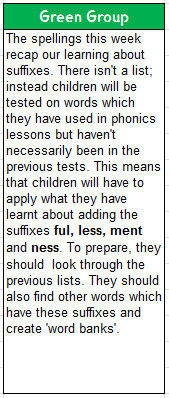

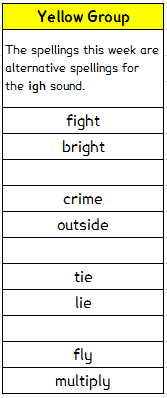
24 March 2016
This week’s spellings will test how well children are retaining information they are learning by focussing on spellings covered across the year so far.
There have been many different spelling rules and patterns explored up to this point in the year. Next week’s test will be from the spelling lists learnt in the first half term (07.09.15 – 23.10.16). Children should look over these lists and note the patterns we learnt about, picking out words they think they found most tricky at the time.
Ten spellings from this list will be tested as children are not expected to learn spelling simply for a test but for long term use of these words.
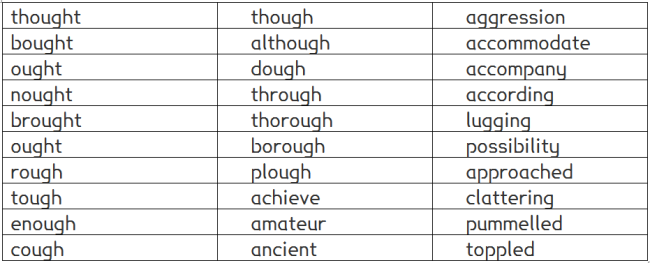
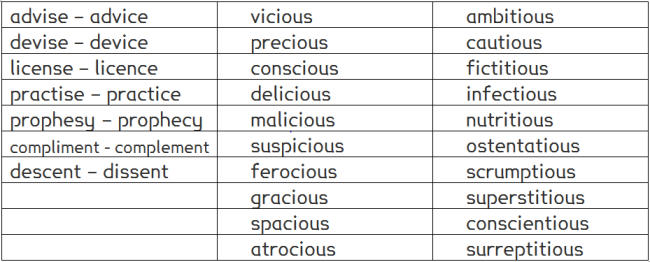
18 March 2016
These are the spellings for next week:
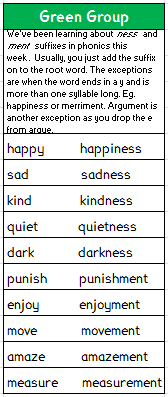
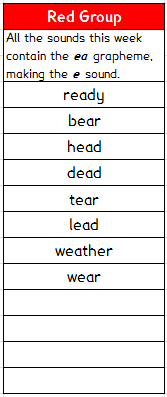
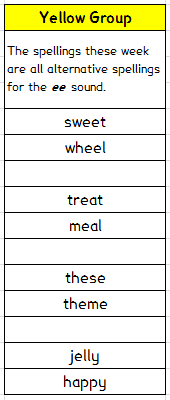
18 March 2016
This week, your child has been given a copy of the Year 3/4 spelling list. They must pick 10 spellings that follow the rule double up for a short vowel sound. Words that follow this rule include comma (compare the sound of the ‘o’ with coma, where there is no double up), hopping (compared with hoping) and funny. Why not ask your child to identify the short vowel sound in each of these words. 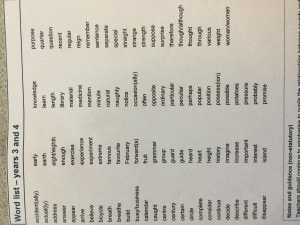
18 March 2016
Spellings this week are not one specific list. The children have gone through their English book and picked out words they have spelt incorrectly in the past in order to learn these and not make the same mistake again.
It’s best if ten minutes of each day is given to practising spellings and we’ve looked at lots of different ways in which we can practise in class.
- word shapes
- word pyramids
- missing vowels
- create a crossword
- make it into a wordsearch
- good old look, write, cover, check.
These spellings will be tested on Thursday 24 March.
11 March 2016
This week’s spellings all contain negative prefixes. Negative prefixes change the meaning of the root word to the opposite. Your child will need to be able to spell all the root words below and know which negative prefix can be applied (for example, misappear will count as an incorrect answer in Friday’s test). Your child only has the root words in their learning list but if they get stuck identifying which negative prefix to apply, they are as follows:
disappear
inconsistent
unfair
unhappily
unusually
infamous
misunderstand
disadvantage
mismatch
unjust
11 March 2016
Here are the spellings for this week: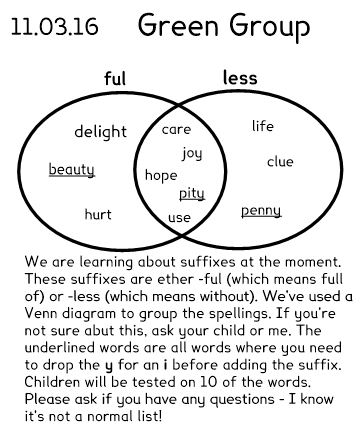
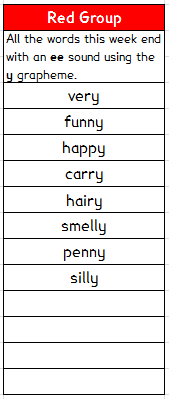
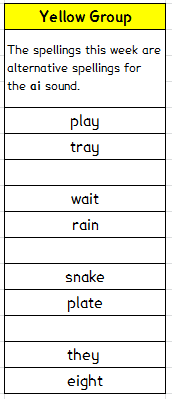
04 March 2016
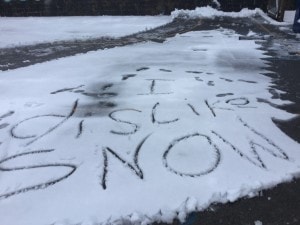 This week’s selling all have a negative prefix. This makes the new word mean the opposite of the root word (so untidy means messy, the opposite of tidy).
This week’s selling all have a negative prefix. This makes the new word mean the opposite of the root word (so untidy means messy, the opposite of tidy).
As well as the eight below, your child needs to find two more words with a negative prefix which they will be tested on on Friday.
- disappoint
- disagree
- disobey
- misbehave
- mislead
- misspell
- inactive
- incorrect